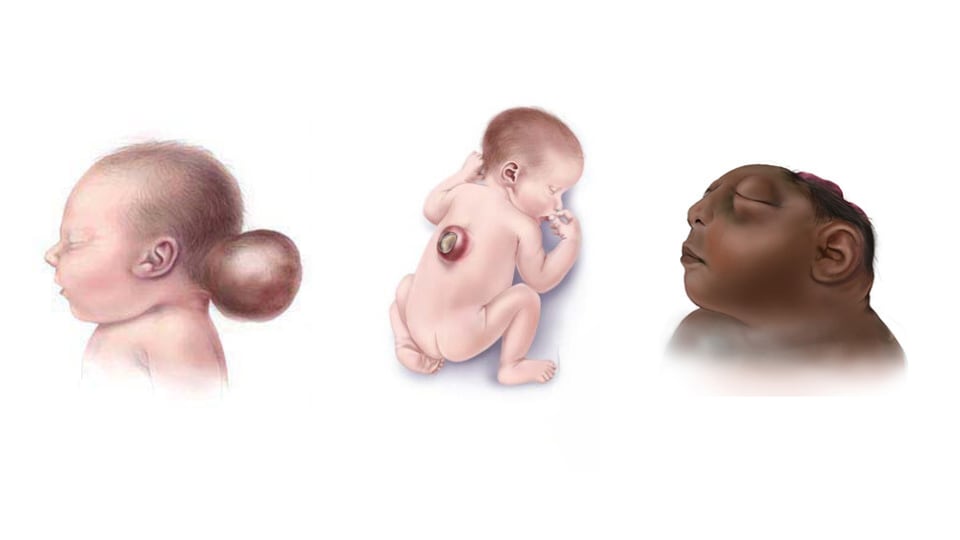Key points
- Neural tube defects (NTDs) are threatening birth defects of the brain and spine.
- NTDs develop very early during pregnancy, often before you know you are pregnant.
- Getting 400 micrograms (mcg) of folic acid before and during early pregnancy can help prevent NTDs.
What they are
The neural tube is a narrow channel that folds and closes during the third and fourth weeks of pregnancy.
As the neural tube forms and closes, the upper part helps form the baby's brain and skull. The lower part of the neural tube helps form the spinal cord and back bones.
Neural tube defects (NTDs) are problems that occur when the neural tube does not close properly.
Types
The most common NTDs are spina bifida, anencephaly, and encephalocele. Spina bifida affects about 1,300 babies a year in the United States.1 Spina bifida can happen anywhere along the spine. When the neural tube does not close all the way, the backbone that protects the spinal cord does not form and close. This often results in damage to the spinal cord and nerves.
Anencephaly is one of the most threatening NTDs. It affects about 700 babies each year in the United States.1 Anencephaly happens if the upper part of the neural tube does not close all the way. The front part of the brain (forebrain) and the thinking and coordinating part of the brain (cerebrum) are missing at birth. Bone or skin does not cover the remaining parts of the brain.

Encephalocele is a rarer NTD, affecting about 350 babies each year in the United States.1 With encephalocele, a sac-like protrusion of brain tissue comes out of an opening in the skull. The opening commonly at the back of the head, the top of the head, or between the forehead and the nose.
Risk factors
We do not know all causes of NTDs, but certain factors can affect the risk of a baby having an NTD. This can include a change in the baby’s genes or a combination of genes and other factors.
Researchers have identified factors in pregnant people that might increase the risk for these conditions:
- Low folate (vitamin B9) levels during early pregnancy2
- Pre-existing health conditions, such as diabetes, that are not well controlled
- Certain medications, such as antiseizure medications
- Overheating (like getting in a hot tub) or fever
Since neural tube defect can occur early in pregnancy, talk to your healthcare provider about your risks before pregnancy.
Importance of Folic Acid
- Stallings, E. B., Isenburg, J. L., Rutkowski, R. E., Kirby, R. S., Nembhard, W.N., Sandidge, T., Villavicencio, S., Nguyen, H. H., McMahon, D. M., Nestoridi, E., Pabst, L. J., for the National Birth Defects Prevention Network. National population-based estimates for major birth defects, 2016–2020. Birth Defects Research. 2024 Jan;116(1), e2301.
- Crider KS, Qi YP, Yeung LF, Mai CT, Head Zauche L, Wang A, Daniels K, Williams JL. Folic Acid and the Prevention of Birth Defects: 30 Years of Opportunity and Controversies. Annu Rev Nutr. 2022 Aug 22;42:423-452. doi: 10.1146/annurev-nutr-043020-091647.
